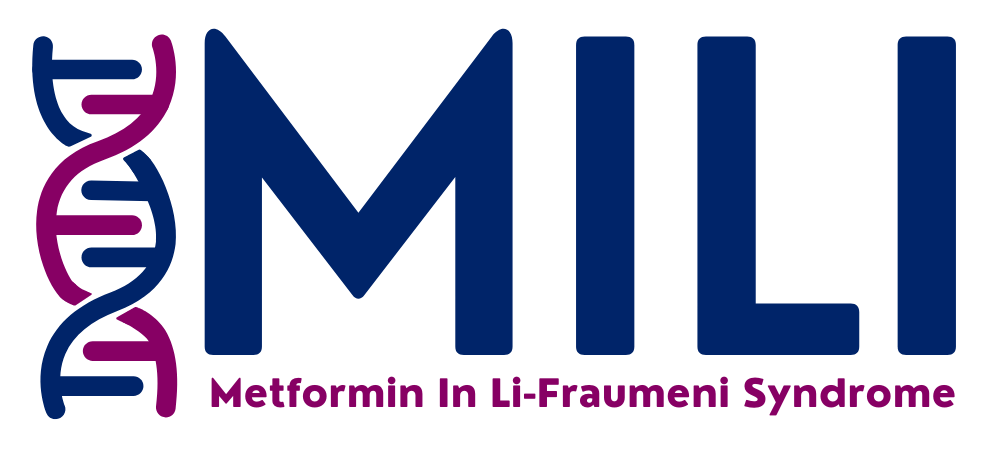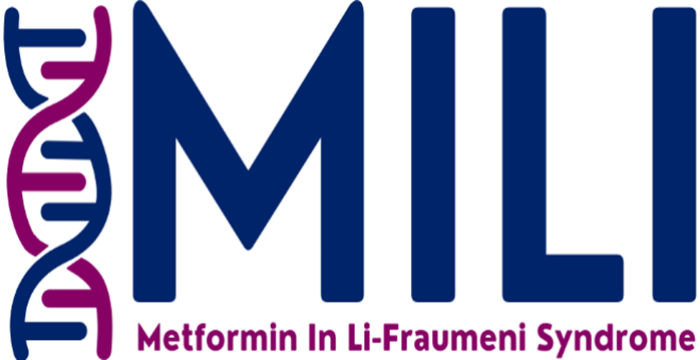Metformin in Li Fraumeni Syndrome (MILI) Trial: A phase II randomised open-label cancer prevention trial of metformin in adults with Li Fraumeni Syndrome
MILI is a clinical trial investigating the use of a drug called metformin as a way of reducing the cancer risk in people with Li Fraumeni Syndrome (LFS).
In this trial, adults with LFS who agree to take part will be randomly allocated either to
- Have cancer surveillance alone or
- Have cancer surveillance and take metformin every day for up to 5 years
By comparing results from the two groups, we will be able to tell whether metformin can reduce the risk of developing cancer and/or delay the emergence of cancer.
Metformin is a very commonly used drug that is licensed to treat diabetes. However, it is not licensed as a cancer prevention for people with Li Fraumeni Syndrome (LFS).
A person with LFS carries a pathogenic variant* within their TP53 gene and this is associated with an increased risk of cancer.
Scientists have shown that among other things TP53 controls metabolism within the cell, in other words it decides how the cell turns nutrients into energy. In people carrying a TP53 pathogenic variant, their metabolism is turned up.
There is evidence that metformin can “turn down” metabolism in people with LFS and this may reduce their chances of getting cancer.
To learn more about LFS, visit LFS / TP53 – The George Pantziarka TP53 Trust.
*Many different terms are used to describe cancer causing genetic variants. “Mutation,” “disease causing alteration or variant,” “pathogenic mutation,” or “pathogenic variant” are all terms you may come across. We will use the term “pathogenic variant” to describe a variant in a gene which is known to increase the chance of developing cancer.
To learn more about Li Fraumeni Syndrome, visit LFS / TP53 – The George Pantziarka TP53 Trust.
More details on participating in the trial are provided here: What does taking part in MILI involve?.
If you are interested in participating in the MILI Trial, a list of our participating centres can be found here: Recruiting Centres.
Please contact your local genetics team if you would like to find out more.







